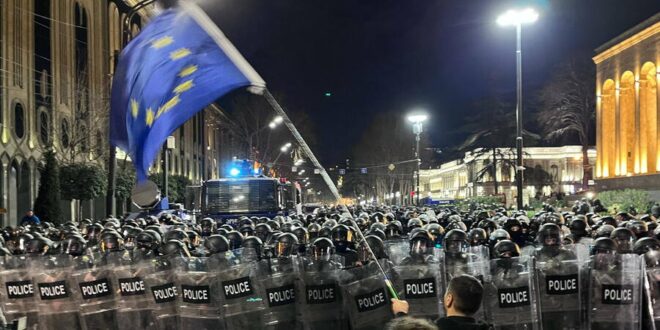Georgian civil society is fending off the so-called agent law – and thus also preventing pro-Russian influence in the country, which aspires to join the EU.
Chișinău With European flags and against water cannons, tear gas and autocratic arbitrariness: thousands of people have taken to the streets in Georgia’s capital in recent days – and have achieved the supposedly impossible. On Thursday morning, the ruling party withdrew the so-called “agent law,” which allows the government to de facto eliminate opposition movements and independent media.
The prevention of this law is entirely due to civil society, which is prepared to take to the streets for its civil liberties and belonging to Europe. What’s more, the protests in Tbilisi are also clearly directed against Russia’s influence in the country, which remains very large.
With the planned law, the government has oriented itself towards Russia, where unpleasant media professionals, non-governmental organizations and researchers are discredited and discriminated against as “foreign agents”. Many of them have now left the country or are in prison.
A similar development could not have been ruled out in Georgia in the long term and would probably have represented an insurmountable hurdle for the country on the way to accession to the European Union, which large parts of the population fervently desire. As in Ukraine, large parts of the population in Georgia have been trying for years to escape Moscow’s influence.
Although Georgia was denied EU candidate status last year, the population exemplifies what Europe stands for.
Georgia withdraws push for “foreign agent law”
People all over Europe should take this as an example – because neither freedom of the press and opinion nor freedom from Russian influence can be taken for granted today.
 Eurasia Press & News
Eurasia Press & News




